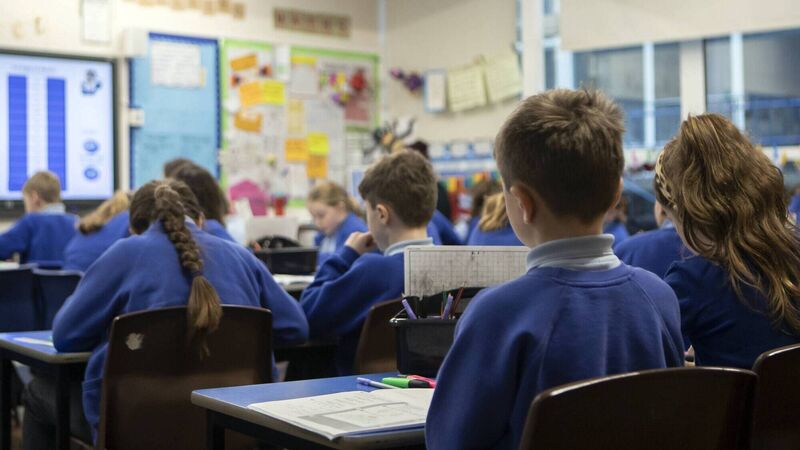New school sex ed guide repeats Church position 'marriage between man and woman can't be omitted'

The Bishop's Council for Education says the material in the 'Flourish' progamme is "bright, fun, engaging, interesting and pedagogically sound".
Sex as a "gift from God" which belongs in committed relationships and marriage as a sacrament of commitment are two of the themes included in new sex education resources for Catholic primary schools.
They also say that while children should not be made to feel othered, the Catholic Church’s teaching in relation to “marriage between a man and a woman cannot be omitted".
The details are included in ‘Flourish’, a new relationship and sexual education (RSE) programme for all Catholic primary schools on the island of Ireland, developed by the Irish Bishops Conference.
The programme includes lessons on topics like safe internet usage, friendship, puberty and body changes, with each lesson ending with a prayer reflection.
Strands and themes for the programme for the senior classes include:
- Sex is a gift from God. It belongs in committed relationships. Sex is not a commodity;
- Puberty is a gift from God. We are perfectly designed by God to procreate with him;
- Sexual love belongs within a committed relationship. Marriage as a sacrament of commitment.
In an introductory document entitled ‘The vision for RSE in Catholic primary schools’, the programme sets out that RSE must be taught in Catholic schools “with reference to moral decision-making".
The document also adds that teachers must be sensitive to the family circumstances of the children in their care.
It goes on to say: “Children in the senior classes in primary school will be aware [of] the existence of LGBTQI and some may question their own identity in this regard.”
The RSE programme must not promote shame but rather “seek to affirm that every human being is made in the image and likeness of God and is loved by God as they are".
“The same moral obligation to respect and treat our bodies with dignity applies to people of all sexual orientation," it says.
“However, the Church’s teaching in relation to marriage between a man and a woman cannot be omitted.”
In one lesson, teachers are asked to explain to children that love takes many forms, and to explain to students that when a person is attracted to someone of the same sex in a romantic way “they are said to be homosexual or gay".
The same lesson then invites children to draw all the different kinds of family groups.
A spokesman for the Irish Bishops’ Conference said all teaching in a Catholic primary school in areas relating to the Church’s teaching is done in “an entirely invitational way” using pedagogies outlined by the curriculum.
The biological aspects of RSE are contained in this programme, entirely in line with the National Council for Curriculum and Assessment (NCCA) curriculum for Social, Personal and Health Education (SPHE), he added.
The programme will be amended if necessary when the NCCA review of RSE is completed; this review is expected to take a number of years.
The Bishop's Council for Education believes the Flourish programme provides the best opportunity “for teachers and pupils to explore together, in the context of their school’s ethos, important themes within RSE and SPHE".
“The material, written by a former principal, is bright, fun, engaging, interesting and pedagogically sound," it says.
"Feedback so far has been very positive. Principals in particular have really welcomed this resource and know that they and their teachers have the expertise, training and support to use it to good effect in their schools, for the good of their pupils.”





